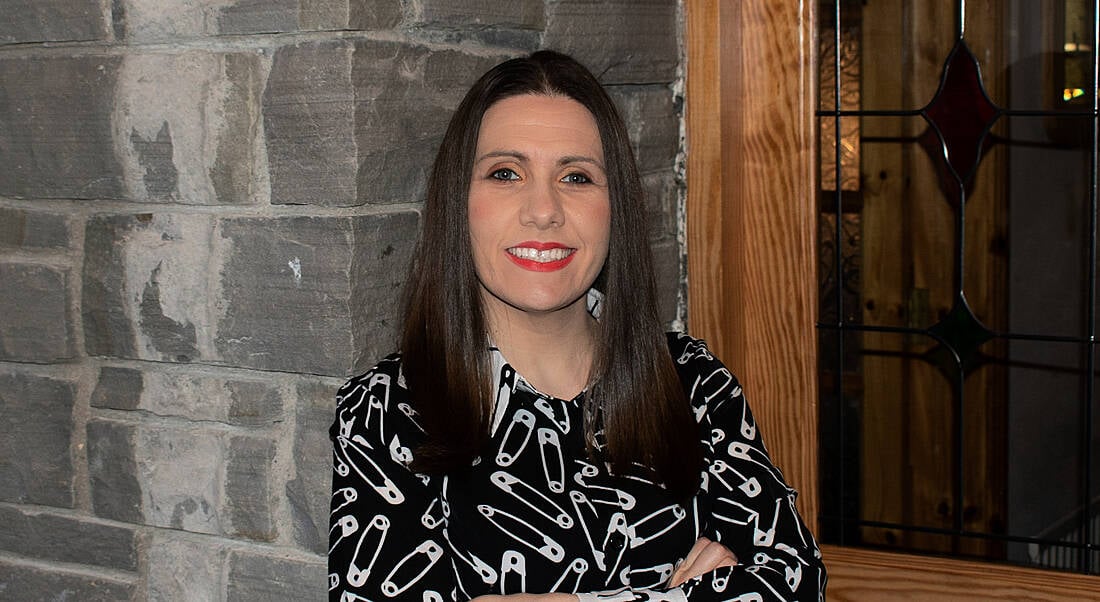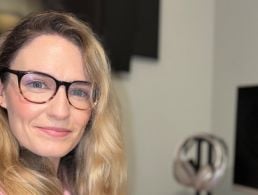For Engineers Week, we’re shining the spotlight on a wide variety of people working within Ireland’s STEM sector and Cora Ryan is just one of them.
The science, tech, engineering and maths (STEM) industries have a diverse mix of people working within them. People who are constantly breaking down stereotypes of the ‘white, male scientist’ that have in the past been associated with roles within the sector. Movements such as #iLookLikeAnEngineer have been instrumental in highlighting the real faces and people in the industry, and inspiring a new generation of students preparing to enter it.
Cora Ryan, product manager and squad lead in Fidelity Investments, is one such inspirational person who leads engineers in their work and steers projects towards completion. Here, she talks about what inspires her in her role.
‘If you are looking for boredom and uniformity, then a career in IT is not for you!’
– CORA RYAN
What drew you to your career in software engineering?
When I was in secondary school in the late ’90s, my science teacher used to tell us stories about his brother who was a software engineer and how people used to stop him to admire his car. I followed the promise of cash to a degree in computer science, but luckily my aptitude for maths and logic, and a surprising interest in the area, meant that I was suited towards a career in IT.
My days as a software engineer taught me that I love understanding how applications function, which is a huge benefit to me in my product management role today.
What’s the best thing about working as a product manager?
My interest in people, how they use software and how software needs to solve problems for them, and not create them, took me in the direction of product management. Solving problems for people is easily the best thing about working in product management and IT in general. Getting an understanding of where problems or inefficiencies exist, figuring out and delivering a solution to makes people’s lives and jobs better and easier, and getting feedback that the problem was solved is what motivates me in my role. It’s a challenging role, but it’s one that I love.
What’s the most exciting development you’ve witnessed in your sector since you started working in it?
Cloud and collaboration technologies have been the biggest and most beneficial advancements that I have witnessed.
Cloud equals scale at speed. Solutions can be delivered quicker and therefore problems can be solved for many more people and in a more resilient way.
Collaboration technologies have allowed us to move from having the entire development team working physically together to having the entire team working remotely overnight without disruption or loss in productivity. Collaboration technologies are the fundamental business continuity plan for software development teams to stay productive despite geography or global pandemics.
I work very closely with colleagues across Ireland, the US, India and the UK and these collaborations are effective and successful through the use of those collaboration technologies.
What’s been the hardest thing you’ve had to face in your career, and how did you overcome it?
I truly love my job. Sunday night fear is not something I ever have to worry about! Leaving the industry altogether, some years back, was probably the hardest thing I have had to face.
I trained as a yoga teacher and I thought that it was something I wanted to pursue full-time. I left the industry altogether, went travelling and even had my own yoga studio for a while. Making the decision to leave was very challenging as working in IT was always something that gave me great personal and career satisfaction.
Making the decision to come back to IT full-time was one of the easiest decisions I have ever made. That decision brought me towards the business analyst and product management side of IT, rather than engineering. If I hadn’t left, I may have stayed in the engineering side of IT, but the product management destination I have landed in is a dream role for me, so the hard decision has brought me to somewhere much better.
Having started my IT career in Fidelity Investments, in the Leap Technology Graduate Programme, it was an obvious choice to return to Fidelity when the opportunity arose.
If you had the power to change anything within the STEM sector, what would that be?
The perception that software engineering and IT is all about ones and zeros! Software engineering is all about people, understanding people and their needs. The ones and zeros are a means to an end and we have progressed far further than having to understand ones and zeros these days.
Similarly, on perception: the perception that the STEM sector is not really a career for girls. There are a lot of women making significant contributions through software engineering and IT careers. Fidelity Investments has a lot of women working in IT. My own group has a strong female representation and, in my upward reporting line, there are more women than men. It’s important that inclusive views are encouraged to deliver a usable software application for all.
Which of your personality traits makes you best suited to your job?
Two things: being fundamentally lazy and being very interested in people!
Being fundamentally lazy is a huge motivator toward finding inefficiencies and eliminating them. Whether it’s team development and communication practices we adopt or finding inefficiencies in business processes, or how a software application is being used, being lazy has ultimately increased productivity for me and others.
I have always been very interested in people and what motivates people to take actions. This has helped enormously when designing solutions and making decisions on what features to prioritise. The delight of consumers and usage is the key measure of an application’s success and so understanding the consumer is always the first step.
How do you make connections with others in the STEM community?
I find that LinkedIn is an excellent resource for making connections and for learning in this industry. Sharing articles, blogs and e-magazines, or learning about podcasts and seminars through the platform has allowed me to learn how others are solving problems, and about advancements in research.
Has mentorship or coaching been important in your career?
Indirectly, yes. Naturally I am very interested in people, so I will always take note of how others operate (most likely to learn how I can do something quicker or more easily). I am very lucky in that I am surrounded by highly-skilled colleagues, which gives me a great opportunity to learn every day.
What advice would you give to someone thinking about a career in your area?
If you are looking for boredom and uniformity, then a career in IT is not for you! In IT, you are always on the bleeding edge of something new happening. Everyday advancements in technology are being made that requires something new to be learned and adopted, and change the way we have always done things. Growth and change are all part of the territory and it gives great satisfaction to be a part of something new.
IT careers also offer great flexibility, from where you can live (especially now) to how you can structure your day. Being able to change your day to suit a personal appointment or meet a family commitment is not as easy to do in some other careers as it is in IT.




